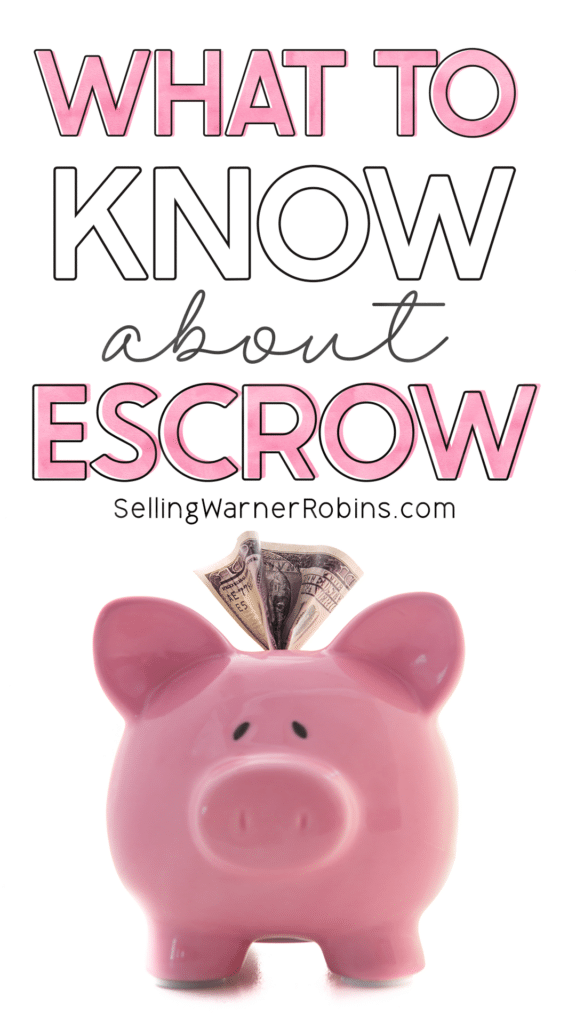Your 101 Guide to Escrow

The process of buying and selling real estate can be complicated and overwhelming. For those new to the real estate market, the term “escrow” may just seem like a word to you. Within this guide to escrow, you will find a comprehensive overview of the escrow process and what it entails. Whether you are a first-time buyer or seller or simply want to understand the process, here’s the information you need to navigate the escrow process.
Escrow also offers payment protection, particularly in high-value transactions. Holding the buyer’s payment until all conditions are met ensures the buyer’s funds are secure even if the seller fails to fulfill their obligations. Escrow also verifies the quality or condition of goods and services. Buyers can deposit funds into escrow while sellers provide evidence of delivery, allowing for a satisfactory inspection before releasing payment.
Lastly, escrow facilitates mediation and dispute resolution. With an objective escrow agent overseeing the transaction, any conflicts or disagreements can be resolved fairly and impartially, avoiding costly legal battles in the future. In summary, escrow is a trusted mechanism for secure and transparent transactions, providing security, payment protection, verification, and dispute resolution benefits to all parties involved.
Why is Escrow Needed?
Escrow is a financial arrangement involving a trusted third party to hold and oversee funds or assets on behalf of multiple parties engaged in a transaction. Its purpose is to provide various benefits and safeguards for everyone involved. Escrow establishes security and trust by acting as an intermediary that prevents fraudulent activities and misuse of funds or assets. Both the buyer and seller can feel confident that their interests are protected.
How Escrow Works
Escrow is an agreement where an escrow agent holds and manages the payment of funds to purchase a property. The assigned escrow agent is a neutral third party who ensures all conditions for sale are met before the transaction is complete, and the funds are released. When the buyer and the seller reach an escrow agreement, the buyer deposits the fund into the escrow account. Escrow terms can include inspections, repairs, and other contingencies to meet before they finalize the transaction.
After the conditions are met, the escrow agent disburses the funds an

d ensures the necessary documentation, like the title transfer, is completed and filed.
Types of Escrow
- Real estate escrow
- Mortgage escrow
- Online escrow
- Business escrow
The Escrow Process
Agree to terms
The first step of the escrow process is the buyer and seller agreeing to the terms and conditions of the sale. After the parties have completed the negotiation process and agree to a purchase price, contingencies, and other transaction details, the escrow agent drafts a purchase agreement. Once the purchase agreement is signed, the parties deposit their funds into the escrow account.
During the agreeing to terms phase of the escrow process, the buyer and seller need to carefully review the purchase agreement and ask any questions that arise. Both parties should also ensure that all necessary contingencies are clearly defined within the purchase agreement to avoid misunderstandings and disputes later in the process.
Deposit the funds
After the buyer and seller have agreed and met all terms, the assigned escrow agent may begin depositing the funds. With real estate, the escrow agent may deposit both points and loans into the escrow account.
Points are fees paid to the lender at closing to reduce the interest rate on a mortgage or residential hard money loan. Buyers can pay points to lower their monthly mortgage payment over the lifetime of their loan. Loans are another type of fund that gets deposited into an escrow account. If the buyer is using a mortgage to finance their property, the lender will require the buyer to make a deposit to cover the initial costs of the loan. These initial costs include appraisal fees, title insurance, and other closing costs.
Meet the escrow conditions
Meeting escrow conditions involves ensuring all the terms and conditions outlined in the purchase agreement are complete before completing the real estate transaction. During this step, the escrow agent verifies all prerequisites, such as inspections. These contingencies and conditions are complete before the sale can be finalized. For example, the purchase agreement may be contingent upon the buyer obtaining financing.
Once all conditions are met, the agent prepares the necessary documentation and arranges the funds and title transfer. This may involve working with a title company to ensure the transfer is completed correctly and the new owner is on the property deed. Ensuring both parties meet all necessary conditions before finalizing the deal gives buyers and sellers insurance for a smooth process while avoiding potential surprises later.
Funds get released to the seller
The release of funds is the final step in the escrow process. Once all conditions and the paperwork is complete, the escrow agent can arrange the funds release to the seller. The escrow agent disburses the funds from the escrow account directly into the seller’s account. The amount of funds released to the seller depends on the purchase agreement terms and the deposits into the escrow account. In most cases, the funds include the purchase price of the property and any additional agreed-upon fees or charges.
Before releasing the funds, the escrow agent also confirms the necessary taxes and fees are paid and the appropriate documentation is filed with the corresponding government agencies, guaranteeing the escrow is legal. Once the funds are released, the escrow transaction is considered complete. This means the property is officially transferred to the buyer, and the agent’s role is finished.
Benefits of escrow
Security
Because the assigned escrow agent is in charge of verifying all necessary documents and paperwork are in order, this can prevent issues with the title transfer or other legal issues that could arise later on. The escrow process also assures that they will receive payment for the property once the conditions are met. This helps prevent non-payment and ensures a successful transaction.
Protection & Peace of Mind
The escrow process is designed to protect both the buyer and seller in the real estate transaction. By holding funds in a neutral account, the escrow agent ensures both parties are covered in the event of any disputes or issues. The escrow process provides peace of mind to both parties knowing the transaction is handled in a professional and controlled manner. This helps reduce stress and anxiety that may arise due to the buying and selling process.
Efficiency
The escrow process helps make real estate transactions more efficient by streamlining the process and reducing the risk of errors or delays. The escrow process centralizes the entire real estate transaction, provides professional oversight, and is secure and controlled with legal backing.
Easy to resolve disputes

The escrow agent acts as a neutral third party in the transaction, which helps ensure the transaction is completed fairly and without bias.
How to Choose an Escrow Agent
When choosing an escrow agent, it is important to consider several factors to ensure you select a reliable and trustworthy professional. Here are some key factors to look for when selecting an escrow agent:
- Experience: Look for an escrow agent with a solid track record and extensive experience in handling escrow transactions. An experienced escrow agent has a deep understanding of the intricacies involved in various types of transactions and can navigate challenges effectively.
- Reputation: Research the reputation of potential escrow agents and companies. Check for reviews, testimonials, or references from previous clients to gauge their reliability and professionalism. A positive reputation indicates a higher likelihood of receiving quality service.
- Credentials and Licenses: Verify that the escrow agent holds the necessary credentials and licenses required by regulatory authorities. This ensures they operate within legal frameworks and adhere to industry standards.
- Security Measures: Inquire about the security measures implemented by the escrow agent to protect the funds or assets held in escrow. They should have robust safeguards in place to prevent unauthorized access or breaches of security, such as encryption protocols, secure storage systems, and adherence to data protection regulations.
- Communication and Responsiveness: Effective communication is crucial during the escrow process. Assess the escrow agent’s responsiveness to inquiries, their ability to explain complex concepts clearly, and their willingness to keep you informed and updated throughout the transaction. Open and transparent communication builds trust and ensures a smooth transaction.
- Professional Network: Evaluate whether the escrow agent has a strong network of professionals, such as attorneys, real estate agents, or financial advisors. A well-connected escrow agent can leverage their network to facilitate the transaction, provide additional expertise when needed, and streamline the overall process.
- Cost and Fees: Compare the fees associated with different escrow agents or companies. While price shouldn’t be the sole determining factor, it’s essential to understand fee structure upfront and evaluate it in conjunction with the agent’s reputation and quality of service provided.
- Compliance and Legal Knowledge: Escrow agents should have a comprehensive understanding of relevant laws, regulations, and industry practices. They should be well-versed in the specific requirements and documentation needed for different types of transactions to ensure compliance and minimize potential legal risks.
Choosing the right escrow agent is a critical decision that significantly impacts the success and security of your transaction. Taking the time to research, evaluate, and select a reputable and experienced escrow professional will help ensure a smooth and protected transaction process. It’s advisable to consult with legal and financial advisors who can provide guidance and recommendations based on your specific needs and circumstances.
Escrow FAQs
When is escrow typically used?
Escrow is commonly used in real estate transactions, business acquisitions, online transactions, and large-scale purchases involving significant sums of money or valuable assets.
What is the role of an escrow agent?
An escrow agent, often a neutral third party such as an attorney or escrow company, acts as the custodian of the funds or assets held in escrow. They ensure that all parties meet their obligations before releasing the funds or assets.
What are the benefits of using escrow?
Escrow provides security and trust by protecting both the buyer and seller from fraud or misuse of funds. It also ensures payment protection for buyers and verification of goods or services before funds are released. Additionally, escrow facilitates mediation and dispute resolution if conflicts arise.
What documents are typically involved in an escrow transaction?
The specific documents required can vary depending on the nature of the transaction. However, common documents involved in escrow transactions include purchase agreements, contracts, title deeds, financial statements, disclosure statements, and any other relevant legal or financial documents related to the transaction.
How long does escrow typically take?
The duration of an escrow period depends on the specifics of the transaction and the agreed-upon terms. It can range from a few days to several months, depending on the complexity and conditions of the transaction.
Who pays for the escrow service?
Typically, the costs associated with escrow services are divided between the buyer and seller or as negotiated in the transaction. The specific allocation of these costs may vary depending on local customs and agreements between the parties.
Can I choose my escrow agent?
In many cases, the buyer and seller can mutually agree on the choice of an escrow agent. However, there may be instances where specific regulations or contractual obligations dictate the use of a particular escrow service. It’s important to review the terms and conditions of your transaction to understand any limitations on choosing an escrow agent.
Can escrow be canceled?
Escrow can be canceled if all parties involved agree to the cancellation and any necessary conditions or requirements are met. However, canceling escrow may have financial or contractual implications, so it is essential to consult with the escrow agent and legal professionals before taking such action.
Is escrow mandatory?
The requirement for escrow depends on the type of transaction, local laws, and the preferences of the parties involved. In certain cases, such as real estate transactions, escrow may be legally mandated, while in others, it is optional but highly recommended for the protection it offers.
The 101 on Escrows
The escrow process is a critical part of buying and selling real estate. Understanding what escrow entails, how it works, and its benefits helps buyers and sellers navigate the process smoothly and efficiently. By following this guide to escrow, you can make an informed decision and ensure a successful real estate transaction.
About Anita Clark Realtor
Anita Clark has written 687 posts on this blog.
Anita is a residential Real Estate Agent in Warner Robins Georgia, with Coldwell Banker Access Realty (478) 953-8595, aiding buyers and sellers with all their real estate questions on her Warner Robins blog.



